Paleontology
-
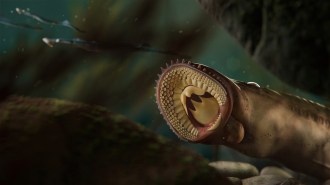 Paleontology
PaleontologyNewfound fossil species of lamprey were flesh eaters
In China, paleontologists have unearthed fossils of two surprisingly large lamprey species from the Jurassic Period.
-
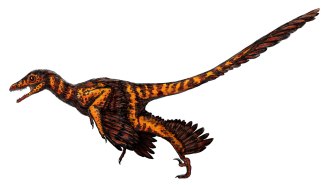 Paleontology
PaleontologyDinosaur feathers may have been more birdlike than previously thought
Feather proteins can change during fossilization, raising questions about what dinosaur feathers really can tell us about feather evolution.
-
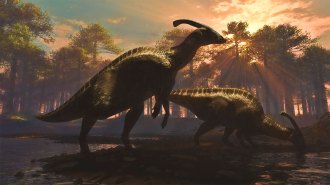 Paleontology
PaleontologyNew computer analysis hints volcanism killed the dinosaurs, not an asteroid
Scientists take a creative approach to investigating what caused the mass extinction 66 million years ago, but the debate is far from settled.
-
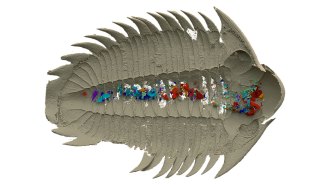 Paleontology
PaleontologyA one-of-a-kind trilobite fossil hints at what and how these creatures ate
The preserved contents suggest the trilobite fed almost continuously and had a gut environment with an alkaline or neutral pH, researchers say.
By Sid Perkins -
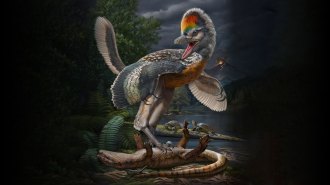 Paleontology
PaleontologyThis newfound birdlike dinosaur had surprisingly long legs
Early birdlike dinosaurs are mostly short-limbed and thought to have lived in trees, but Fujianvenator prodigiosus may have run or waded in swamps.
By Nikk Ogasa -
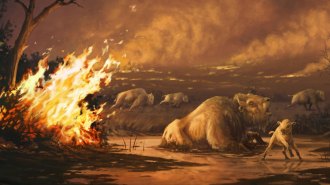 Life
LifeAround 13,000 years ago, humans and fire changed LA’s ecosystem forever
Rapid drying combined with human-made fires changed Southern California forever, killing off ancient bison, dire wolves and five other megafauna species there.
By Jake Buehler -
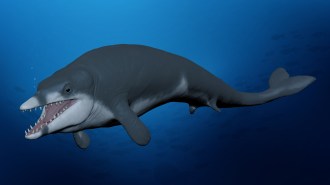 Paleontology
PaleontologyMeet the tiny ancient whale named after King Tut
The newly discovered Tutcetus rayanensis lived about 40 million years ago. It was just 2.5 meters long and weighed less than 200 kilograms.
By Skyler Ware -
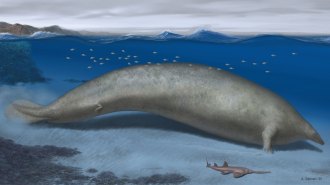 Paleontology
PaleontologyA colossal ancient whale could be the heaviest animal ever known
Perucetus colossus may have tipped the scales at up to 340 metric tons, but some scientists are skeptical it could have sustained that mass.
By Skyler Ware -
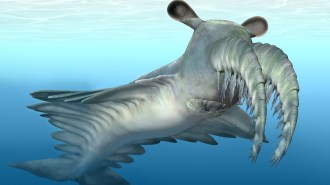 Paleontology
PaleontologyThis ancient, Lovecraftian apex predator chased and pierced soft prey
Half a billion years ago, Anomalocaris canadensis probably used its bizarre headgear to reach out and snag soft prey with its spiky clutches.
By Nikk Ogasa -
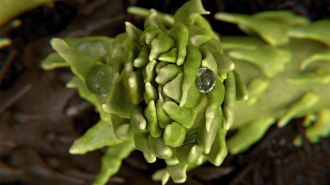 Life
LifeA 407-million-year-old plant’s leaves skipped the usual Fibonacci spirals
Most land plants living today have spiral patterns involving the famous Fibonacci sequence of numbers. But an extinct, ancient plant did not.
By Skyler Ware -
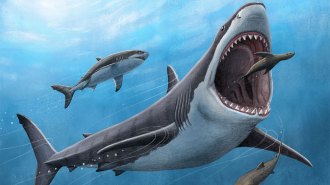 Paleontology
PaleontologyMegalodon sharks may have become megapredators by running hot
O. megalodon sharks were warm-blooded megapredators. But colder-blooded great white sharks may have had an evolutionary edge when food sources dwindled.
-
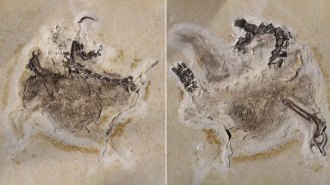 Paleontology
PaleontologyPaleontology has a ‘parachute science’ problem. Here’s how it plays out in 3 nations
When researchers study fossils from lower-income countries, they often engage in dubious or illegal practices that can stifle science.